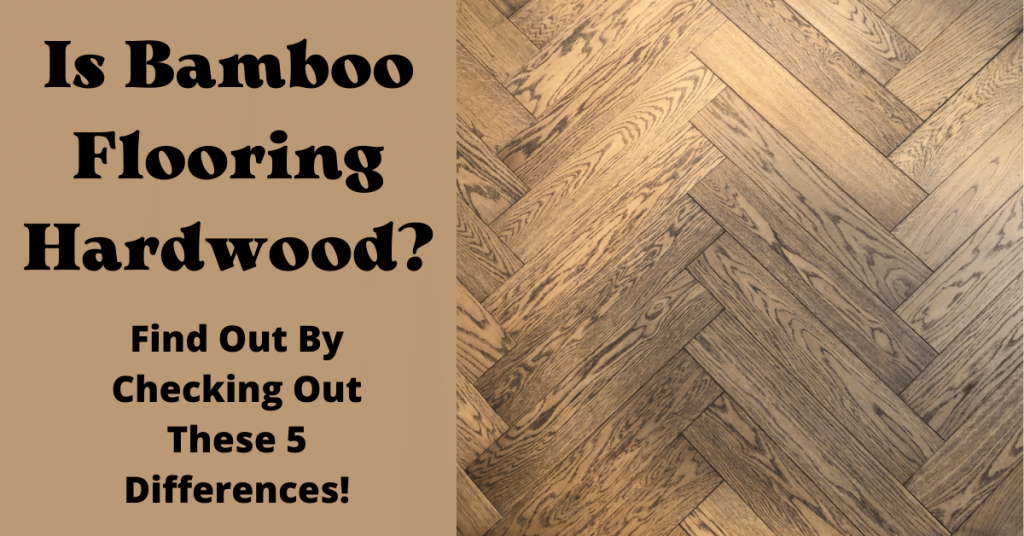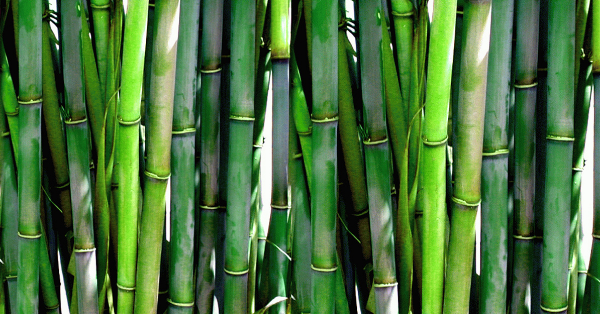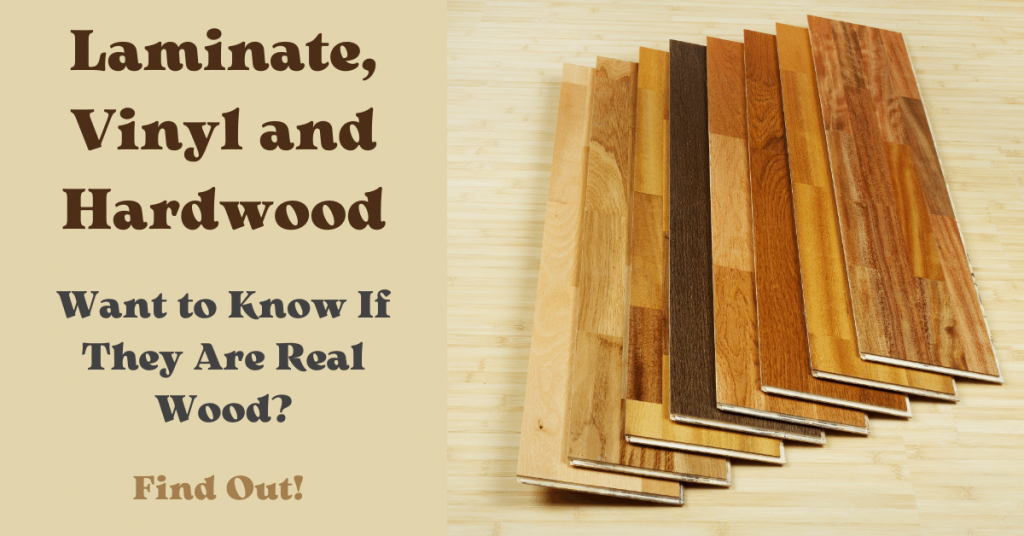Bamboo floors are in trend. A lot of things have contributed to their popularity. One of the most important things that made bamboo popular is that it looks and feels like hardwood. Apart from this, low ecological impact of using bamboo has also made it very popular.
But is bamboo really a hardwood? A simple answer would be no. Many people confuse its toughness with hardwood. While it is tougher than many hardwoods, there are several other reasons that make bamboo different from other solid woods.
Bamboo is not hardwood. The fact that bamboo is a grass that grows rapidly and is tougher than hardwood when pressed together makes it different. Moreover, bamboo has little variation in appearance and is cheaper than hardwood.

5 Big Differences Between Bamboo and Hardwood
Many people confuse bamboo wood as real hardwood. This is not actually the case. There are many features that bamboo wood shares with ordinary hardwood. For example, both woods are tough and absorb moisture. However, there are also major differences between the two. So, if you are planning to get bamboo flooring, know beforehand that it is not hardwood as it differs in the following ways:
1. Bamboo is a Grass and Not a Wood
First of all bamboo is not a wood. It is basically a grass that grows in tropical areas with high rates of rainfall. Different grass strands naturally join together to give bamboo a sturdy built. However, this hardness does not mean that it is a wood. It is grass after all.
Bamboo absorbs moisture. So, seal your floor to protect it.
Many people think that since bamboo is native to areas with high levels of moisture, it is a good moisture repllent as well. This is actually not the case. Like hardwood, bamboo absorbs moisture as well. And you have to seal your floor to protect it.
Bamboo is engineered before it is used for flooring. During the engineering, different techniques are used to convert bamboo into wood lumbers. These wood lumbers are then cut and finished to size. These specific sized tile-like structures then go into wooden flooring.

2. Bamboo Grows Much Faster Than All Other Hardwood
Apart from being a grass, bamboo is different because it grows much faster than other solid wood types. On an average, it takes 30 years for a hardwood plant to mature in areas where with warm climate. For areas with colder climates, hardwood plants can take even 100 years to fully mature.
Unlike hardwood, it only takes 3 to 4 months for a bamboo tree to get fully matured in tropical conditions.
On the other hand, bamboo only takes on season in a tropical environment to get fully matured. One season is roughly three to four months. Yes, you heard it right. This is how quick bamboo grows. Since it grows quicker, its properties are fundamentally different from other hardwood that takes much longer to develop and mature.
The fact that bamboo grows much faster is of importance. The rapid growth makes it easier to replenish bamboo plants and forests. This fact has also increased the appetite for bamboo wood especially among the conservationists.
3. Bamboo Has Little Color and Appearance Variation
Another difference between bamboo and other types of hardwood is the lack of variation that bamboo offers. The ordinary solid wood comes from a wide variety of plant species. You literally can choose from pine, walnut, oak, beech, maple, teak, etc. However, a bamboo wood comes from a single source: the bamboo plant.
The only differences you can have when it comes to bamboo stem from the way the wood is engineered. You can either have a vertical grain, flat grain, or stranded grain. This depends on how different bamboo strands are joined together to make a wood lumber.
4. Bamboo Is Tougher Than Many Solid Woods
Another difference is of hardness. Bamboo wood in its natural condition is tougher than many hardwoods. For example, your bamboo flooring is tougher than maple and oak flooring.
Bamboo is tougher than oak, cherry, poplar, and aspen woods. It is almost as tough as the maple wood
On Janka hardness test, bamboo rates at around 1400 points. On the same scale, oak, cherry, poplar, and aspen rate 1220, 950, 540, and 350 respectively. Bamboo on Janka hardness test is as tough as maple wood which rates at around 1450 points.
5. Bamboo is Cheaper
Since it grows faster, bamboo forests are easily replenishable. Therefore, there price is also very low as compared with other woods that take years and years to mature.
While bamboo floor averages at around $3.5 per square foot, other hardwoods can cost you anywhere between $8 to $25 per square foot. The cheap price, low ecological impact, and sturdy built are some features that have made bamboo flooring very popular.
Conclusion
Many people are mistaken when they take the hardness of bamboo to believe that it is hard wood. Bamboo is not a hardwood. It differs from hardwood in a number of ways. Bamboo is basically a grass that grows very quickly unlike other hardwood. Moreover, bamboo comes in very little variation and is much cheaper than other hardwood. In addition to this, bamboo wood is tougher than many other wood types including oak, cherry, poplar, aspen, etc.
Want to know if vinyl, laminate, and engineered hardwood are organic solid wood? Check this out:
Laminate, Vinyl and Hardwood. Want to Know If They Are Real Wood? Find Out!
Wooden flooring has a lot of variety. But do all the materials used are real wood? Check out for answer!

